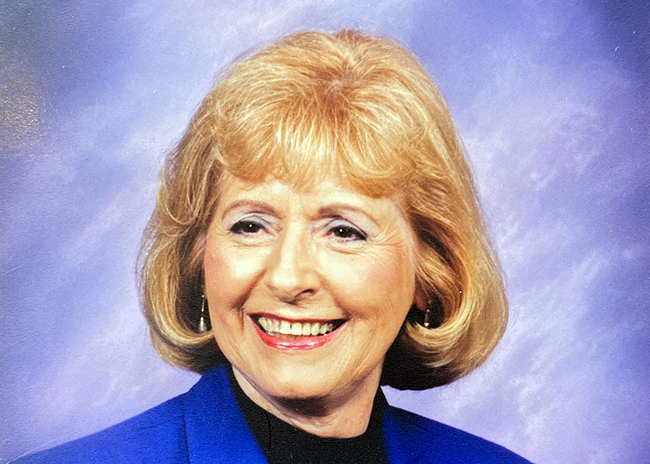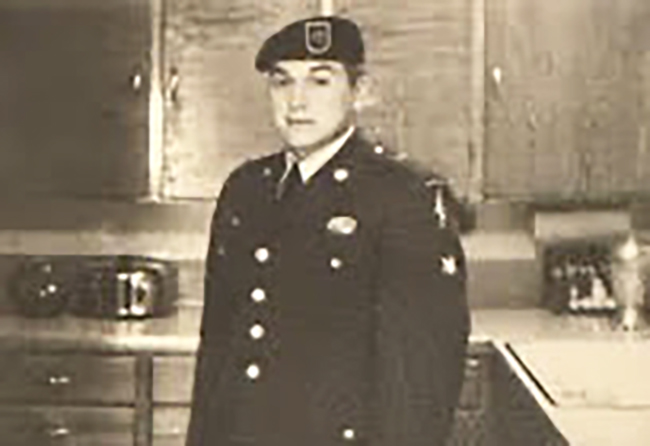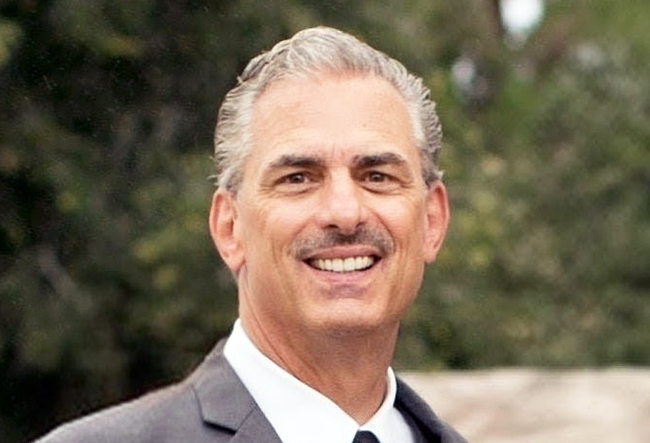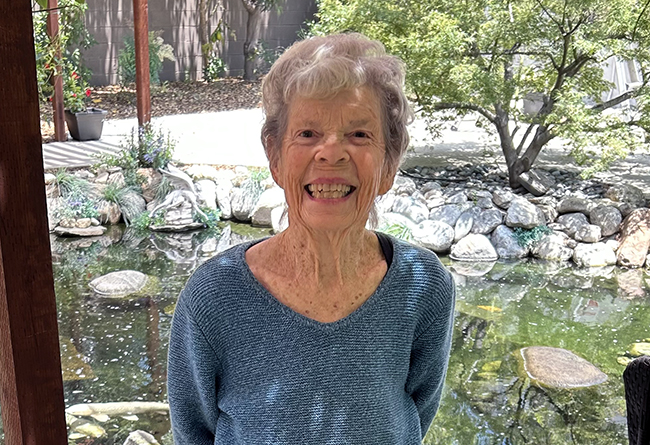Judge Holley Graham
Pioneering judge, steadfast friend
The Honorable Holley Graham, a retired judge, died October 19, 2014 at his home in Chino, California. He was 91.

At age 10, HB, as friends and family called him, got a paper route. He loved reading the newspaper and, having an enterprising spirit, used his earnings to buy magazines and start his own magazine delivery service. While buying the magazines at a local drug store, he also started a medicine and prescription delivery service. He bought a ham radio and tuned into stations from Chicago and New York, which heightened his awareness of the world.
HB had his first brush with legal greatness as a child. When his parents were at work and his sister Frankie was busy studying (he always swore she read every book in the library), his babysitter was Thorton J. Meacham Jr. Initially refused membership to the New York bar because of his race, Mr. Meacham went on to become one of Harlem’s finest legal advocates and remained licensed into his mid-90s.
Holley went to Lane College at 16. He was so small in stature (he was nicknamed “Bemis” after a very small company town in Madison County, Tennessee) that he could ride the bus for free, as could all kids under 12. He did some spots on a radio show in Memphis and, when advised he needed a catchier radio handle, changed his name from Holsey to Holley.
He put his studies on hold when he took a job as a porter on the New York Central Railroad’s 20th Century Limited, which turned into a four-year stint. Holley was a music lover who taught himself to play clarinet and just about every other woodwind instrument, along with some piano. He was a particular fan of swing, especially the music of Artie Shaw, Count Basie and Duke Ellington. He frequented legendary Harlem venues like the Cotton Club, Savoy Ballroom, Minton’s and the Apollo and dabbled in acting, studying the Strasberg method and taking on a role in a Broadway production of “All God’s Children.”
In 1952, he took a job as a radio announcer in Pittsburgh. In 1956, he traveled to Chicago where he worked for a tape recorder manufacturer. When the company sent him to Los Angeles in 1958, he settled there, opening his own electronics repair shop. After meeting Judge David W. Williams, the first African-American federal judge west of the Mississippi, he was inspired to change courses. Holley enrolled in the Southwestern University School of Law, graduating in 1965.
That same year, he joined Martin Luther King Jr. and thousands of demonstrators in the historic march from Selma, Alabama to Montgomery to campaign for voting rights. He said it was the most frightening experience of his life, but he continued to press for racial equality, fighting against inequities like racial profiling.
“If you were a bigot, and he had no need for you, he would just tell you to your face in profane language,” Claremont attorney and longtime friend Linda Battram-Dorosh shared. “But if he needed you for some plan of his, he would ignore it and show the bigot his character for strength and truth and as a can-do capable human being.”
HB was admitted to the bar in 1966 and served as a prosecutor in the Los Angles city attorney’s office. Next, he worked for seven years as a Los Angeles deputy public defender.
“I served alongside Holley in the Los Angeles County Public Defender’s Office in Compton in the late 1960s,” Howard Franklin wrote in an online tribute. “Holley was the finest defense attorney I ever observed, and an equally fine human being. His intelligence was matched by the warmth of his large heart.”
He then entered private practice in Chino, with a focus on criminal defense. He always said he had promised God he would help people, and so he never worried if he got paid or not. The leave-it-to-a-higher-power philosophy worked. In 1971, HB was able to buy a 2.4-acre ranch with a barn, horse corrals, a room dedicated to his ham radio collection (which he called “his shack”) and space to park several cars to tinker with, including a GM Roadster. He raised thoroughbreds with his son Huntley, and had a beloved dog named Duffy, who he said could catch birds out of the air if they flew too low.
He was appointed by Governor Jerry Brown to the Chino Municipal Court as a judge in November 1979 on the recommendation of Senator Ruben Ayala, becoming the second African-American to be named to judgeship in San Bernardino County.
He was first elected to the bench in 1984 after a campaign with the slogan “tough but fair.” After being sworn in at Rancho Cucamonga Superior Court, he celebrated with a large party where he prepared smoked barbecued ribs for his guests. After he retired from the Chino court in 1992, he served for a time as an interim judge, including two years in the Los Angles Superior Court in Chino, then resumed law practice. In 1999, he filled out a term on the Monte Vista Water District board. His civic engagement also included Life Member status in Kiwanis.
Judge Graham had a knack for forming friendships and keeping them. One of his favorite sayings was a quote by Hamlet, “Those friends thou hast, grapple them to thy soul with hoops of steel.”
Ms. Battram-Dorosh met Judge Graham years ago, when she was a college student.
“I was at the courthouse in Pomona, trying to figure out where to go, when he appeared in front of me and asked how he could help me,” she said. “He directed me to the clerk’s office and gave me his card.”
When she mentioned to Judge Graham that she had taken a law class that she had enjoyed, he encouraged her to go to law school.
“He discussed Constitutional law. Working against oppressors of human rights and bullies: that was his bent, philosophically,” she said.
One of Judge Graham’s proudest victories was when he successfully defended the “The Bird Lady” of Pacific Palisades’ right to feed birds in the area, despite the complaints of neighbors that she attracted too many noisy and messy birds.
After she became a lawyer, they worked together in some trials. Ms. Battram-Dorosh would head over to Judge Graham’s house, with her young nephew in tow, to visit the horses. They would invariably be treated to good cooking, with Judge Graham’s specialties including pancakes, crab legs, steak, ribs, fresh cornbread and fried oysters, among other delicacies.
Ms. Battram-Dorosh said that Judge Graham’s devotion to his vocation was remarkable.
“He couldn’t eat or sleep or do anything when he got to trial,” she recalled. “That’s all he could think about. He gave his whole heart and soul to his cases and clients.”
Judge Graham’s sister Frankie D. Graham preceded him in death. His wife, Lucille Emma Broyles, predeceased him in 1983.
Judge Graham is survived by his son Huntley Graham, granddaughter Joscelyn Graham, nephew C. Roy Jones, Jr. (Wanda), four first-cousins, including Patricia Larry and Johnie B. Seals, and a host of relatives. He also leaves his close friends, Attorney Linda Battram-Dorosh, Patrick Grabosky and Shantilal Bhagat.
Celebration of Life services will be held on November 5, 2014 at 2 p.m. in the La Verne Church of the Brethren, 2425 E St. in La Verne. All are welcome. In lieu of flowers, the family suggests donations to Lane College, Gift Cashier, 545 Lane Ave., Jackson, Tennessee 38301 or online at www.lanecollege.edu.








0 Comments